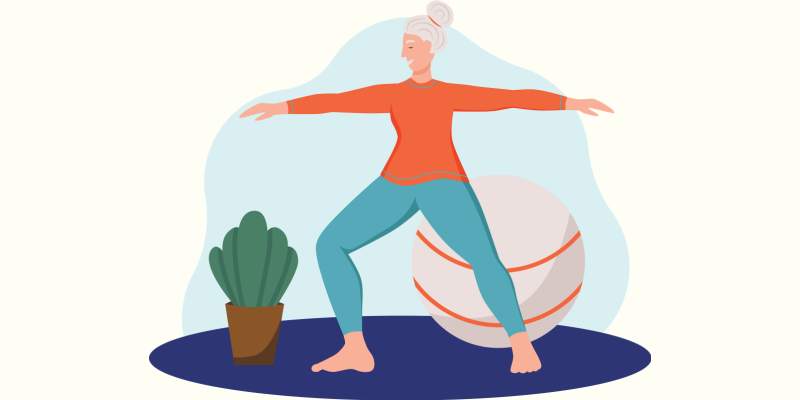Stoughton Health’s physical therapists explain the importance of the vestibular system for our quality of life.
As we age, changes in balance and problems with the vestibular system are common. The vestibular system consists of two complex structures within our inner ear that help us be aware of our own motion, and sense our head position and changes in our environment.
According to Amy Brown, DPT, physical therapist at Stoughton Health, about 35% of people over 40 deal with dizziness and the likelihood of suffering from dizziness increases with age. By age 70, 69% of individuals are struggling with balance issues. Some common symptoms of vestibular disorders may be vertigo (spinning sensation), dizziness, motion sensitivity, difficulty focusing your eyes and decreased balance.
“Symptoms of vestibular disorders should be addressed and not ignored,” Brown says. “Although the vestibular symptoms may not get worse, the consequences of the symptoms should not be ignored.”
One major complication is increased fall risk. As Carin Johns, DPT, physical therapist at Stoughton Health explains, according to the Centers for Disease Control, more than one-third of adults over 65 fall each year due to dizziness and balance problems.
“Complications from falls include fractures, dislocations and head injuries. Falls are the number-one injury-related cause of death in people over 75 years old and the sixth leading cause of death overall,” Johns says. “Beyond the physical concerns, dizziness and balance problems can lead to social isolation, fear, depression and overall functional decline.”
Brown and Johns encourage those dealing with these issues to seek out help from a physical therapist. Vestibular rehabilitation is individualized and based on the patient’s needs after a personalized assessment.
Benign Paroxysmal Positional Vertigo (BPPV) is a common condition causing dizziness/vertigo. Evaluations include the assessment of strength and flexibility, balance and coordination, as well as vision and gaze stabilization. The assessment may include video goggles or computerized testing.
“BPPV symptoms can be quite intense, with the sensation of the room spinning, causing people to seek medical attention,” Brown says. A physical therapist can perform a repositioning maneuver, allowing any dislodged particles in the inner ear to return to correct position. As Brown explains, this treatment is very successful in improving vertigo that occurs with head movements as well as changes in body positioning.
If you would like an assessment for your symptoms, consult with a physical therapist who is certified in vestibular rehabilitation. If you have Medicare as your primary insurance, you will need to contact your physician for a referral for physical therapy. With some private insurances, a referral is not needed, and you may contact the physical therapy department directly to schedule an assessment.
For further information,call Stoughton Health Rehab and Sports Medicine in Oregon at 608-835-5373 or in Stoughton at 608-873-2292.




